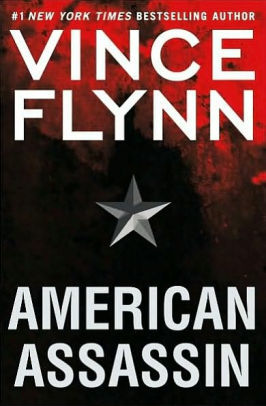
American Assassin
Chapter 13
by Flynn, VinceThe provided excerpt is not a full book chapter but rather a collection of promotional material, copyright information, and acknowledgments from Vince Flynn’s *American Assassin*. The text highlights the novel’s critical acclaim, with reviewers praising Flynn’s gripping storytelling and the protagonist Mitch Rapp as a formidable, Jason Bourne-like CIA operative. The book is positioned as a timely, high-stakes thriller in the post‑9/11 era, resonating with readers concerned about national security and political tensions.
The excerpt includes enthusiastic endorsements from notable figures like Glenn Beck, Rush Limbaugh, and Bill O’Reilly, emphasizing the novel’s fast-paced action and political intrigue. Flynn’s meticulous research and understanding of military and security matters are underscored, lending credibility to the plot. The acknowledgments reveal Flynn’s gratitude to his wife, editors, and industry professionals, reflecting the collaborative effort behind the book’s success.
A brief prelude introduces Mitch Rapp in Beirut, Lebanon, hinting at the protagonist’s origin story and the high-risk world he navigates. This teaser sets the tone for the novel’s exploration of Rapp’s transformation into a lethal operative. The excerpt concludes with a dedication to the victims of the Pan Am Lockerbie terrorist attack, grounding the fictional narrative in real-world tragedies.
Overall, the text serves as a compelling preview of *American Assassin*, blending praise, context, and a glimpse into Rapp’s early days. It appeals to fans of action-packed, politically charged thrillers while offering insights into Flynn’s creative process and the novel’s thematic depth.
FAQs
1. What is the significance of Mitch Rapp being described as “America’s ultimate hero” in the promotional text?
Answer:
The description of Mitch Rapp as “America’s ultimate hero” highlights his role as a patriotic, skilled operative who embodies the ideals of American strength and resilience in the face of terrorism. This characterization positions him as a post-9⁄11 action hero, similar to Jason Bourne but with a focus on counterterrorism. The promotional text emphasizes Rapp’s transformation into a lethal asset, reflecting the book’s themes of vengeance, justice, and the moral complexities of fighting terrorism. His appeal lies in his ability to operate outside bureaucratic constraints, making him a fantasy figure for readers frustrated by real-world political limitations.2. How does Vince Flynn’s writing style and the reception of his novels reflect the cultural moment post-9⁄11?
Answer:
Flynn’s novels, particularly American Assassin, resonated deeply with post-9⁄11 audiences by addressing fears about terrorism and the perceived inadequacies of government responses. Critics praise his “fast-paced,” “chilling” narratives for their realism and timeliness, mirroring public anxieties. The endorsements from conservative figures like Glenn Beck and Rush Limbaugh further underscore the books’ alignment with a hawkish, no-holds-barred approach to national security. Flynn’s work taps into a desire for catharsis, offering a fictional world where justice is swift and unambiguous—a stark contrast to the complexities of actual counterterrorism efforts.3. What role does the dedication to the Pan Am Lockerbie victims play in framing the novel’s themes?
Answer:
The dedication to the Pan Am Flight 103 victims and their families establishes American Assassin as a narrative rooted in real-world tragedies, grounding its fictional plot in historical trauma. This connection underscores the novel’s exploration of grief, retribution, and the personal costs of terrorism. By invoking Lockerbie—a symbol of transnational terrorism—Flynn signals that Rapp’s journey will grapple with the blurred lines between justice and vengeance, mirroring the emotional aftermath of such attacks. It also positions the novel as a tribute to victims, lending moral weight to Rapp’s violent mission.4. How does the promotional text use comparisons to other thrillers (e.g., Jason Bourne) to market American Assassin?
Answer:
The text strategically compares Rapp to Jason Bourne (“the best CIA-trained human weapon this side of Jason Bourne”) to leverage Bourne’s cultural cachet while distinguishing Rapp as a more contemporary, politically charged hero. Where Bourne operates in a world of espionage intrigue, Rapp is framed as a post-9⁄11 warrior, directly confronting terrorism. This comparison appeals to fans of high-stakes action while emphasizing Flynn’s focus on current geopolitical tensions. The “Rambo for the war on terror” line further narrows the appeal to readers seeking a protagonist who embodies uncompromising retaliation.5. Why might the novel’s acknowledgments section be significant for understanding Flynn’s creative process?
Answer:
The acknowledgments reveal Flynn’s reliance on real-world expertise (e.g., military consultants, intelligence veterans like Rob Richer) to craft authentic scenarios, reinforcing the book’s reputation for “deadly aim” in its technical details. His gratitude to his wife for enduring his writing process also humanizes the author, contrasting the novel’s brutal content with personal vulnerability. Notably, Flynn mentions wanting to tell Rapp’s origin story for 15 years, suggesting American Assassin is a culmination of his artistic and ideological vision—a blend of meticulous research and passionate storytelling about the making of a counterterrorism legend.
Quotes
1. “Behind the steely gaze of the nation’s ultimate hero is a young man primed to become an AMERICAN ASSASSIN”
This quote captures the core premise of the novel - the origin story of Mitch Rapp as a lethal CIA operative. It highlights the transformation theme central to this prequel.
2. “Rapp is still the best CIA-trained human weapon this side of Jason Bourne”
A significant comparison that positions Rapp in the pantheon of iconic thriller protagonists, emphasizing his elite skills and status as America’s top covert operative.
3. “A bold and brawny tale that never wavers or lets up… Flynn has never been better.”
This critical praise from The Providence Journal represents the book’s reception as one of Flynn’s strongest works, notable for its relentless pacing and intensity.
4. “A new era was born [on 9⁄11] and this is the best thriller to come out of it so far.”
This quote contextualizes the novel within post-9⁄11 literature, positioning it as a defining work that captures the zeitgeist of America’s war on terror.
5. “Every American should read this book.”
Bill O’Reilly’s endorsement underscores the novel’s perceived importance in understanding contemporary national security issues through fiction.
